Improving Acute Care and Treatment for Older Adults and Multimorbid Patients
Our vision is to improve acute care for older adults and patients with multiple chronic conditions, which requires excellent translational research and strong, committed collaboration between researchers and healthcare professionals. By bridging universities and hospitals, we work to generate new insights, foster innovation, and implement evidence-based practices that directly improve patient outcomes.
Founded in 2019 by Clinical Professor and CAG Chair Ove Andersen and Professor and CAG Vice-Chair Lene Juel Rasmussen, the CAG Prognostication of Acute Recovery Capacity in an Aging Population (CAG ACUTE) seeks to improve clinical decision-making—an essential component of high-quality care and better outcomes and quality of life for patients with chronic diseases and polypharmacy.
Efficient clinical decision-making in unplanned situations and acute care is critical to avoid patient harm and reduce healthcare system strain. Yet, healthcare professionals face increasing pressure due to:
- Limited time and ressources
- An aging population with complex, multimorbid conditions
- Persistent social inequalities in health
In Denmark, of the 1.3 million annual hospitalizations, 1 million are acute, and 70% involve older adults, often presenting with non-specific symptoms and complex medical histories. Timely and accurate interventions through clinical decision-making are vital to reduce mortality and morbidity.
The interprofessional collaboration in ACUTE CAG focuses on investigations, mechanistic studies, and evidence-based results for this critical junction in these patients’ pathway.
“In acute situations, being fast and being correct the first time is equally important – for our patients and the workings of our busy hospitals. Our research is specifically designed to target both these aims and at the same time. And this is the recipe CAG ACUTE follows to improve care for patients with complex medical histories and needs”, says CAG Chair Ove Andersen.
The development and progression of diseases and social dependency are closely linked to the mechanisms and pace of ageing, which are impacted by our living conditions and individual immunological reserves for recovery from acute illness and complications. In CAG ACUTE, we combine biomarkers of ageing with clinical scores and evaluations of e.g. organ dysfunction and responses to pharmaceuticals to better prevent relapses and re-admittance to hospitals.
Clinical studies under unplanned and acute settings are rare despite professional and political recognition of the scientific gaps in the area. It is CAG ACUTE’s purpose to address this challenge by exploring non-disease-specific interventions and implementing treatment strategies targeting older persons, multimorbid patients, and patients in difficult social situations.
CAG ACUTE translational approach integrates clinical research, social science, data science, implementation research, and economics, among others, and covers clinical investigations, mixed-method designs, educational programs for students and health professionals, and basic science using.
The importance of excellent research and strong collaboration
The aim is to re-conceptualize the current conception of disease burden to a less stereotypical and more individualized concept, focusing on a person’s capacity for recovery, using interprofessional evidence from markers and factors linked to ageing and psychosomatic resilience.
The real-world obligation to provide comprehensive and considerate care to all at all times is also a rejection of rigid monodisciplinary investigations and aims to provide clinical and societal relevance. CAG ACUTE will therefore continue to provide evidence for the usefulness of novel mixed methodolgies in diversity-driven collaborations with academia and professions.
The understanding of how to achieve excellence and impact is shaped by CAG ACUTE’s partnerorganizations presence as anchor institutions with missions, histories and local relationships, that makes it possible to combine knowledge from basic research in cellular and molecular biology to societal assets and translate these to tools, guidelines and recommodations, e.g. on the development of the new joint emergency department and post-hospital medical care for homeless people. The CAG’s research strategy is to select, test, and combine markers from biofluid profiles, non-invasive measurements, and patient-reported outcomes, and demonstrate their usage and inclusion in context.
Implementation in clinical practice – how does it work?
Implementation, its workings, outcome measures, and methodological evidence are integrated into CAG ACUTE research led by a senior researcher, Jeanette Kirk, in an international collaboration with Linköping University and Brown School at Washington University, where topics of implementation research and practices have had a long-standing impact. Implementation research work with clinical investigation through hybrid designs with its specific attention to culture and context in clinical organizations that can both enable and promote desired changes. CAG ACUTE’s work shows how to improve mobilization of patients during and after hospitalization, guideline implementation, and shared decision-making in acute settings, but most importantly how to systematically screen for determinants for successful implementation across multiple contexts and organizations disseminated through e.g., forums for implementation strategies.
Learn more about implementation
CAG ACUTE also conducts yearly PhD courses in implementation, at the University of Copenhagen.
The CAG ACUTE Team
CAG ACUTE is led by CAG Chair, Professor Ove Andersen, Amager and Hvidovre Hospital, the Capital Region of Denmark, and CAG Vice-Chair, Professor Lene Juel Rasmussen, the Faculty of Health and Medical Sciences, University of Copenhagen.
Three junior chairs, Senior Researcher and Project Manager Sanne Lykke Lundstrøm, Næstved, Slagelse and Ringsted Hospital, Pharmacist Morten Baltzer Houlind, University of Copenhagen, and Associate Professor Claus Desler Madsen, University of Copenhagen.
A Steering Group with eight CAG Key members and one CAG Coordinator representing the Capital Region of Denmark, Region Zealand, University of Copenhagen, and DTU.








